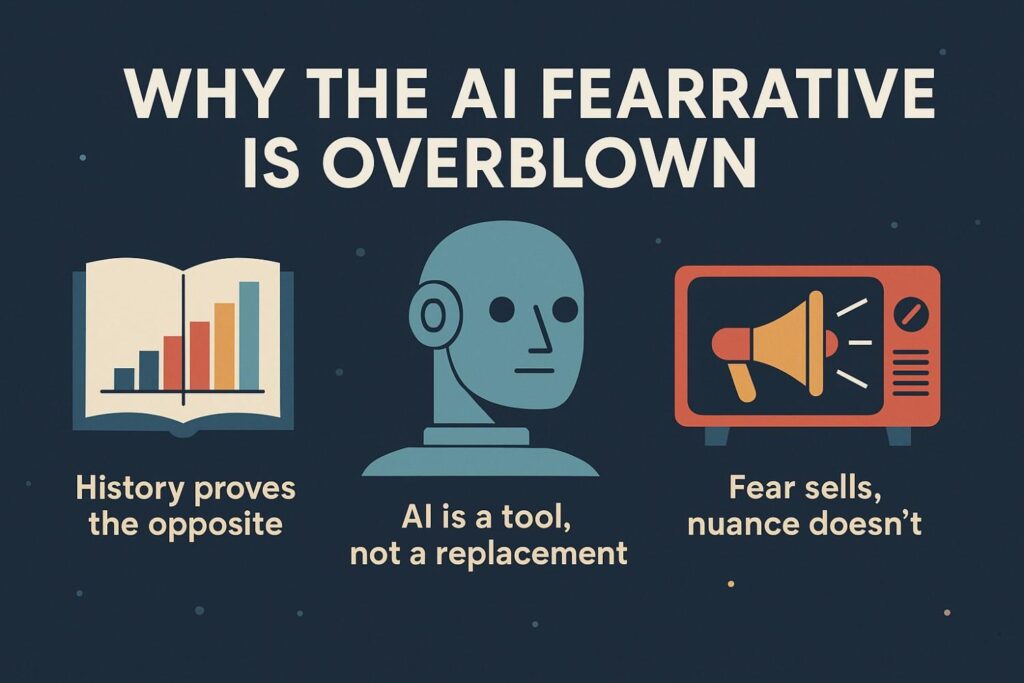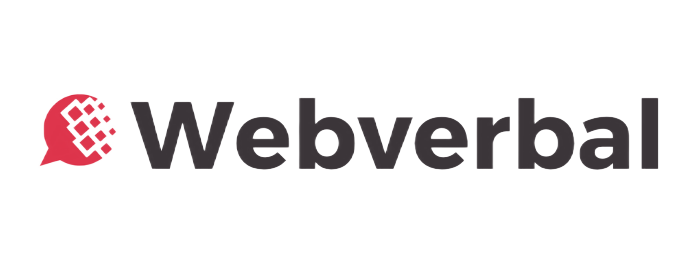Table Of Content
- The Wrong Fear
- Why the AI Fear Narrative Is Overblown
- AI Readiness — Quick Self-Assessment
- The Real Enemy — Complacency and Mediocrity
- What AI Can’t Do (and Why That’s Your Advantage)
- How to Make AI Your Career Multiplier
- Practical ways to stay ahead
- Why This Shift Is Brutal for the “Average Professional”
- Winners in the AI Economy
- The Contrarian Reality Check
- Conclusion: A Future Without Excuses
- FAQs
- Will AI really replace human jobs in the future?
- What jobs are most at risk from AI automation?
- How can professionals future-proof their careers against AI?
- Why is mediocrity more dangerous than AI in the workplace?
The Wrong Fear
The world can’t stop talking about artificial intelligence “stealing” jobs. Every panel discussion, LinkedIn poll, and industry forecast circles back to one anxious headline: AI will wipe out millions of jobs.
But here’s the inconvenient truth: AI won’t kill jobs. Mediocrity will.
It’s not the algorithm that threatens your career. It’s the fact that too many professionals have been coasting on average work, outdated skills, and a belief that just “showing up” is enough. The age of AI is exposing that complacency.
This is not a doomsday story. It’s a wake-up call. And if you understand the shift, you’ll thrive in the new economy instead of fearing it.
Why the AI Fear Narrative Is Overblown

For months, headlines scream about automation taking over. But let’s cut through the noise:
- History proves the opposite. Every major technology — from the printing press to the internet — destroyed some roles but created far more.
- AI is a tool, not a replacement. Just as Excel didn’t kill accountants, AI won’t kill knowledge workers. It shifts focus from repetitive work to creative and strategic tasks.
- Fear sells, nuance doesn’t. Media loves apocalyptic predictions. But reality is subtler: jobs evolve, not vanish overnight.
The problem isn’t AI. It’s how humans are using it.
Think you’re safe from AI disruption? Take this quick self-assessment to see if your skills can truly keep you ahead.
AI Readiness — Quick Self-Assessment
Answer 4 short questions to check whether your skills partner with AI or risk being outpaced.
While many debate whether AI is threatening jobs, the deeper question is how it shapes entrepreneurship itself. Is AI Creating Smarter Indian Startups—or Just Faster Copycats? explores this tension in India’s startup ecosystem.
The Real Enemy — Complacency and Mediocrity
Here’s the uncomfortable fact: if your work can be replicated by a chatbot, you were already replaceable.
- If you churn out copy-paste reports → AI will expose that.
- If your design looks like every other Canva template → AI will outdo you faster.
- If your leadership is about forwarding emails instead of vision → AI tools will reveal your redundancy.
AI doesn’t eliminate excellence. It eliminates average.
Mediocrity has been subsidized for too long. A degree, a job title, or years of tenure could once shield professionals. In the AI era, the only moat is uniqueness, insight, and adaptability.
What AI Can’t Do (and Why That’s Your Advantage)
Contrary to fearmongering, AI has limits:
- AI can’t originate conviction. It predicts patterns; it doesn’t believe in a mission.
- AI can’t build trust. People buy from people they trust, not from lines of code.
- AI can’t interpret culture. Context, emotions, and unspoken norms — these are human advantages.
- AI can’t take risks. Breakthroughs come from people willing to bet on the unseen, not just extrapolate the seen.
Your edge isn’t competing with AI’s speed. It’s leveraging human traits AI can’t replicate.
How to Make AI Your Career Multiplier
Instead of resisting AI, the winners are doing the opposite: using it to amplify their human value.
Practical ways to stay ahead:
- Learn prompt mastery. Treat AI as your research assistant, not your replacement.
- Focus on judgment, not repetition. Delegate grunt work, spend energy on insights.
- Layer storytelling on top of data. AI can generate text, but it can’t weave meaning into it the way you can.
- Develop hybrid skills. A marketer who knows AI + human psychology will always outcompete a marketer stuck in 2015 playbooks.
- Stay uncomfortable. The faster you adopt, the harder it is for mediocrity to catch you.
Think of AI as electricity — you either learn to wire it into your work or you stay in the dark.
Why This Shift Is Brutal for the “Average Professional”
Here’s the part nobody wants to say out loud:
- Middle managers who only sit in meetings? At risk.
- Writers who recycle ideas from Google’s page one? At risk.
- Consultants who repurpose templates without original insight? At risk.
AI didn’t create this problem. It exposed it.
The market is shifting from “hours spent” to value delivered. And AI makes that value measurable. Mediocrity can no longer hide in the crowd.
Winners in the AI Economy
So, who thrives?
- The Craftsperson: Designers, coders, and writers who blend originality with precision.
- The Strategist: Leaders who can set direction, not just manage tasks.
- The Connector: Professionals who build networks, trust, and collaboration — human currencies AI can’t replicate.
- The Translator: People who make complex tech simple for users and customers.
These roles don’t vanish. They become more valuable.
Global reports suggest that automation will transform job categories rather than erase them. According to McKinsey’s Future of Work Report, AI adoption is more likely to shift workers into higher-value roles than replace them outright.
The Contrarian Reality Check
It’s fashionable to say “AI is coming for all of us.” That’s lazy thinking.
The reality? AI is a mirror. It reflects the quality of your work.
- If your work is average, AI makes you obsolete.
- If your work is exceptional, AI makes you unstoppable.
The dividing line is not AI vs. humans. It’s mediocrity vs. excellence
Conclusion: A Future Without Excuses
Stop fearing AI. Start fearing mediocrity.
The AI economy rewards the curious, the adaptable, and the bold. It punishes the average, the complacent, and the replaceable.
AI won’t kill jobs. Mediocrity will.
The only real threat to your career is treating the future as something to fear instead of something to master.
FAQs
Will AI really replace human jobs in the future?
Not entirely. AI may automate repetitive tasks, but it also creates opportunities for new roles that require creativity, problem-solving, and human judgment. The real risk isn’t AI replacing humans — it’s humans sticking to outdated, mediocre skills that AI can easily replicate.
What jobs are most at risk from AI automation?
Jobs that rely heavily on repetitive, rule-based tasks — like basic data entry, template-driven writing, or routine customer service — are more vulnerable. However, roles that combine strategic thinking, emotional intelligence, and adaptability remain resilient.
How can professionals future-proof their careers against AI?
The key is to embrace AI as a tool rather than resist it. Learn prompt engineering, focus on judgment-driven tasks, sharpen storytelling skills, and develop hybrid expertise that blends technical and human abilities. Staying adaptable keeps you ahead of automation.
Why is mediocrity more dangerous than AI in the workplace?
AI exposes mediocrity because average work can now be automated. If your output lacks originality, insight, or value, AI tools will outperform you. Professionals who excel, innovate, and adapt will use AI as leverage, while those stuck in “average” risk obsolescence.




